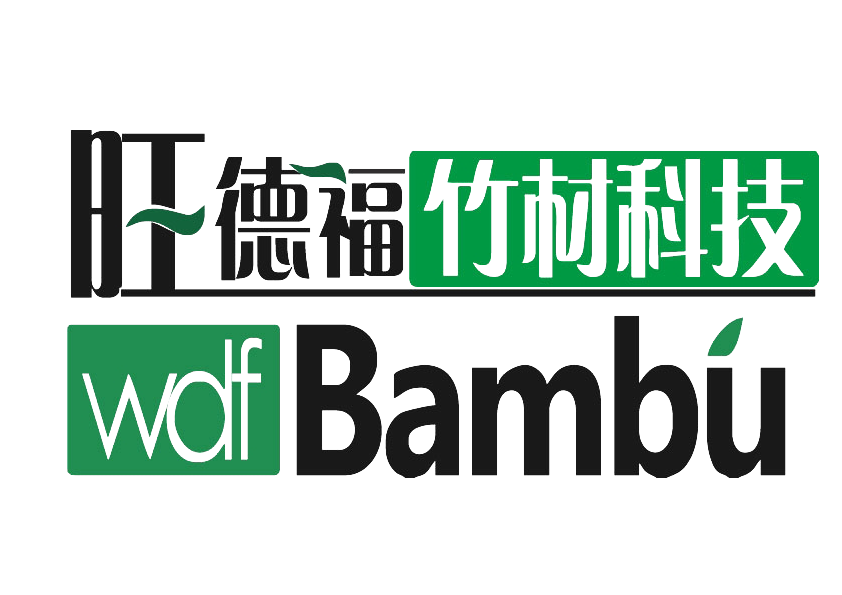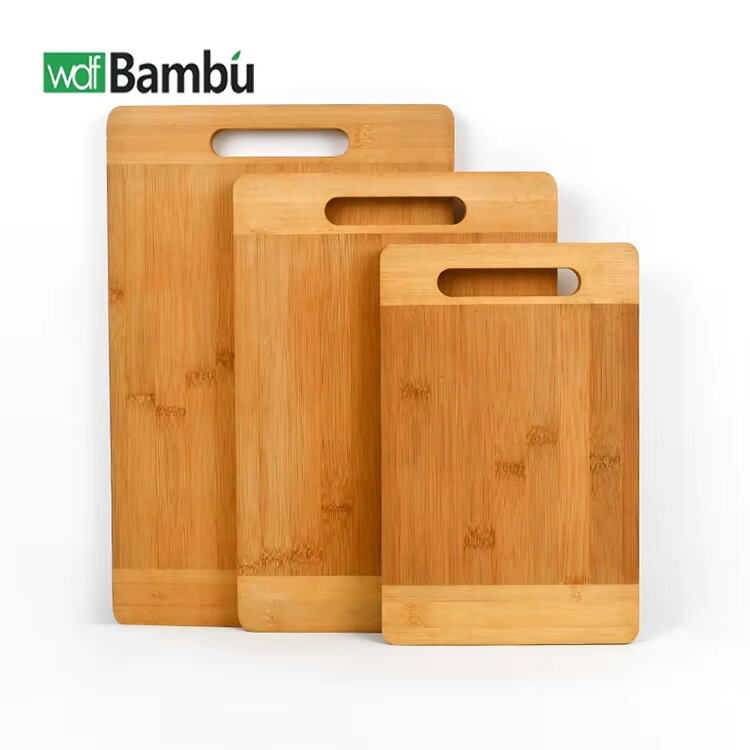Introduction to Bamboo Chopping Boards
Rising Popularity in Modern Kitchens
Bamboo cutting boards are really taking off these days and now seem almost indispensable in most modern kitchens thanks to how good they look and work. The reason behind this popularity? People are starting to care more about having an eco friendly kitchen setup. Both regular folks cooking at home and professional chefs are gravitating toward sustainable options such as bamboo. A recent market analysis showed that bamboo product sales jumped around 25 percent between 2020 and 2023, which definitely backs up what we're seeing on store shelves. But it's not only about being environmentally conscious either. These boards actually hold up pretty well over time while maintaining that nice natural appearance, so they make sense for anyone who wants something both beautiful and long lasting in their kitchen space.
Key Characteristics of Bamboo Material
People love bamboo because it's light but still super strong, which makes it great for kitchens. What really stands out about bamboo is how it fights off bacteria naturally, so food stays safer on these surfaces. The way bamboo looks matters too many folks find it attractive enough to leave out in the open rather than hiding their cutting boards away. Bamboo cutting boards fit right into modern kitchens without looking out of place at all. Some companies now offer custom options where customers can get their name engraved or choose different finishes, turning something functional into a personal statement piece for the kitchen.
Advantages of Bamboo Chopping Boards
Eco-friendly: Bamboo as a sustainable material.
Bamboo stands out as one of nature's most renewable materials, which makes it pretty great for making kitchen stuff that won't hurt the environment. Traditional woods take decades to grow back after cutting down, while bamboo shoots up fast enough that farmers can harvest it within 3 or 4 years without damaging ecosystems much. When people buy bamboo items instead of plastic ones, they're actually helping cut down on trees being chopped unnecessarily and reducing all that plastic junk piling up in dumps. The green movement isn't just trendy anymore either these days more shoppers want their purchases to match their values. Bamboo cookware lasts longer than many alternatives too, so folks get something practical that doesn't cost the earth literally or figuratively speaking. Over time, this switch from synthetic materials to natural ones could really make a difference for our planet's health.
Durability: Resistant to scratches and knife marks.
Bamboo cutting boards really stand up to wear and tear because they're denser than most regular wood types, which makes them great for everyday kitchen work. Research indicates that these boards show fewer scratches and marks than their plastic equivalents do, so they stay looking nicer even after months of slicing and dicing. The fact that they hold up so well means homeowners don't need to replace them as often, plus they keep their good looks despite all the chopping action going on. For anyone who spends a lot of time in the kitchen, getting a bamboo board is probably money well spent in the long run.
Gentle on Knives: Softer than plastic, preserving knife edges.
Bamboo cutting boards have something special going for them when it comes to protecting knives. Glass and hard plastic surfaces can really wear down blade edges over time, but bamboo offers a gentler alternative. The material has just enough give to reduce friction between the blade and board surface. Most home cooks will notice they don't need to sharpen their knives as often when using bamboo. Professional kitchens across the country have switched to bamboo boards because they simply last longer while keeping those expensive chef knives performing at their best. Some restaurants report saving hundreds on knife maintenance costs after making the switch.
Hygienic: Naturally resistant to bacteria and odors.
Chopping boards made from bamboo actually have some pretty good hygiene advantages because they naturally fight off bacteria. The way these boards resist germs makes them much safer when cutting up food. Some studies in the Food Safety Journal showed that after similar use, bamboo boards tend to carry less bacteria than plastic alternatives. Another thing people might not realize about bamboo is how well it keeps away smells, which means it works great for all sorts of different foods without absorbing weird tastes. For anyone concerned about keeping their kitchen clean, going with bamboo makes a lot of sense. Plus, over time, most folks find their kitchens just feel fresher and cleaner with bamboo around.
Cons of Bamboo Chopping Boards
Maintenance: Requires oiling to prevent drying out.
Bamboo cutting boards need some TLC if they're going to last. Regular maintenance keeps them looking good and working well for years instead of months. Apply food safe mineral oil every few weeks or so to keep the wood from drying out and developing those annoying cracks. Let's face it folks, when bamboo gets neglected, it starts to lose strength after a while. The wood becomes brittle and eventually breaks down faster than those plastic composite boards sitting on kitchen counters everywhere. Taking just a few minutes each month makes all the difference in getting the most out of these eco friendly kitchen staples.
Cracking: Can crack over time with improper care.
Bamboo chopping boards tend to crack when they don't get proper maintenance over time. People often overlook how important it is to wash them correctly and let them dry thoroughly after each use. If water sits on the surface too long or if boards are dried improperly, this weakens the wood fibers and causes those annoying cracks that make cutting difficult. Another problem comes from cleaning products. Many folks grab whatever detergent is handy without realizing that strong chemicals eat away at the natural oils in bamboo, leaving it vulnerable to splitting even faster. Anyone who owns kitchen tools knows that taking care of them matters. For bamboo boards specifically, learning the right way to clean and store makes all the difference between having something useful for years versus replacing it every few months.
Not Dishwasher Safe: Needs hand washing to maintain longevity.
Bamboo chopping boards don't play well with dishwashers at all. The intense heat and moisture inside will eventually warp and ruin the wood, which means hand washing becomes necessary. Most people find that washing them by hand with just some gentle soap and warm water works best, even though it takes extra effort compared to simply tossing them into the dishwasher. Anyone who values convenience might want to think twice before choosing bamboo for their kitchen counter. While beautiful and eco-friendly, these boards require more maintenance than other options available on the market today.
Conclusion
Bamboo cutting boards come with pros and cons that people should consider before buying one. Sustainability is definitely a big plus since bamboo grows so fast and can be replenished easily compared to other woods. These boards also tend to last longer than many alternatives, offering a surface that's kind on knife blades but still strong enough to handle heavy chopping tasks. Both amateur cooks at home and restaurant professionals appreciate this feature. The catch though? Maintenance matters quite a bit here. Regular oiling becomes part of routine cleaning, along with avoiding dishwashers because they damage the wood over time. So anyone thinking about getting a bamboo board needs to factor in how much extra care they're willing to put into keeping it looking good and functioning properly long term.
People concerned about the environment tend to really like bamboo chopping boards. Home cooks going green will love how eco friendly bamboo is, and pros in the kitchen appreciate how nice it feels under their knives. These boards actually work great as custom gifts too, especially for folks who want something different in their kitchen setup. What makes bamboo cutting boards stand out isn't just their practical side either. They look pretty good on the counter while getting the job done, which explains why so many people from all walks of life end up choosing them for everyday use.
FAQ
Why are bamboo chopping boards popular in modern kitchens?
Bamboo chopping boards have gained popularity due to their eco-friendly nature, aesthetic appeal, and durability. They combine elegance with functionality, making them a practical choice for modern kitchens.
Are bamboo chopping boards good for knives?
Yes, bamboo chopping boards are gentle on knives, providing a softer surface than glass or hard plastic, which helps preserve the sharpness of the knives.
How should I maintain my bamboo chopping board?
To maintain your bamboo chopping board, regularly apply food-grade mineral oil to prevent it from drying out and cracking. Hand wash it with mild soap and water, avoiding dishwashers.
Do bamboo chopping boards resist bacteria and odors?
Yes, bamboo chopping boards have natural antibacterial properties and resist odors, making them a hygienic choice for food preparation.
What are the disadvantages of using bamboo chopping boards?
The main disadvantages include the need for regular maintenance such as oiling, the tendency to crack over time if not properly cared for, and their incompatibility with dishwashers.



 Home
Home